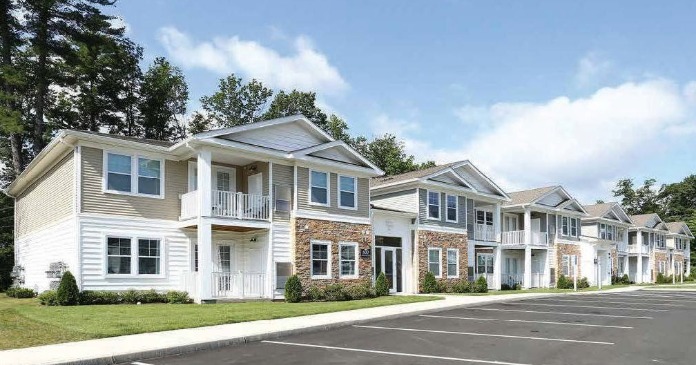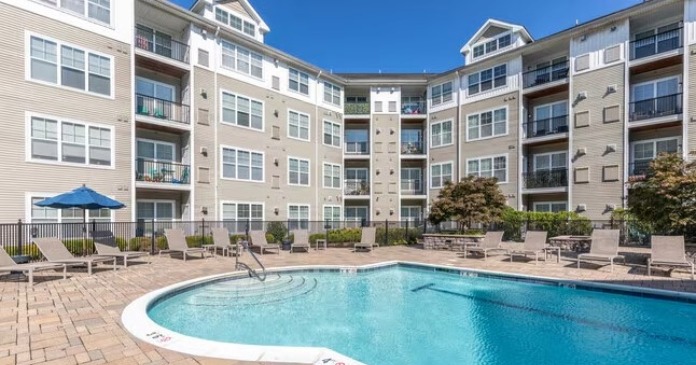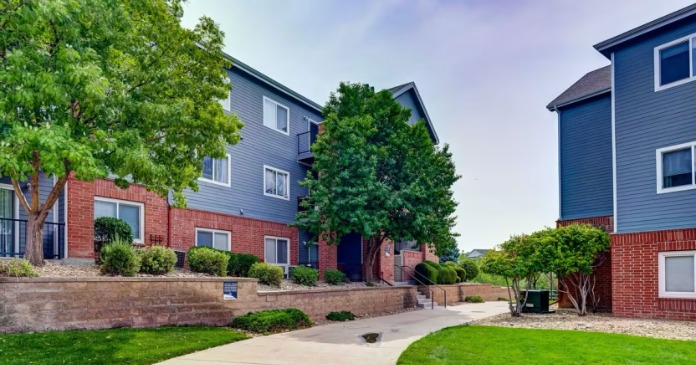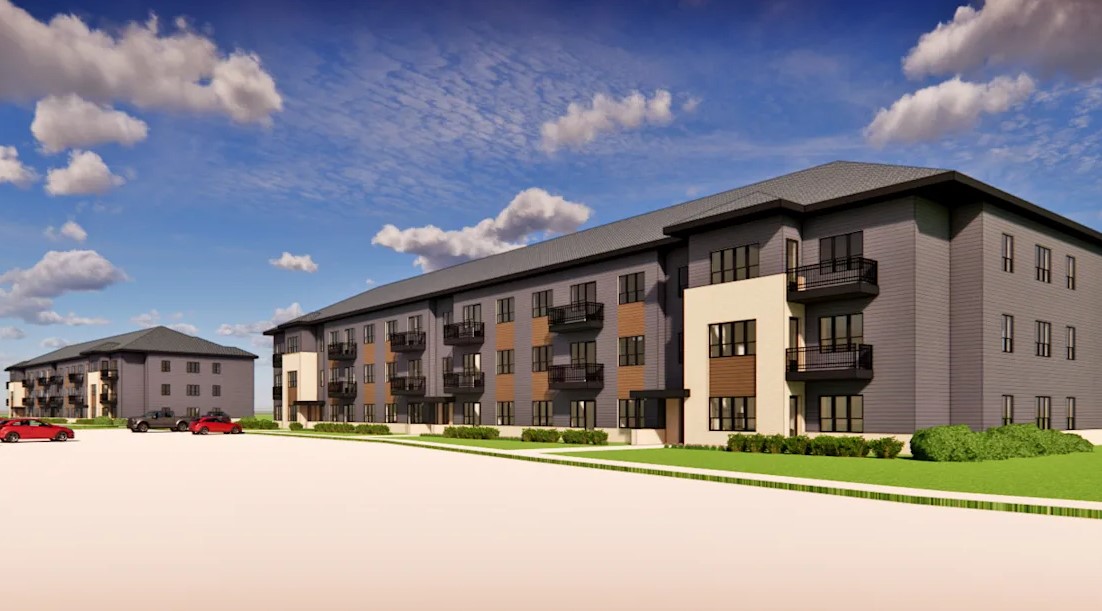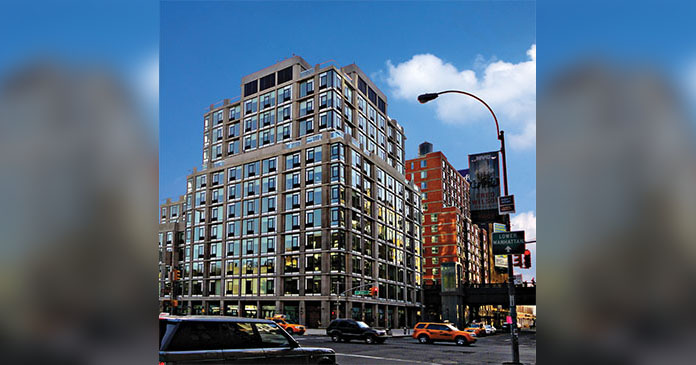
Ten23 owners told the architects they wanted apartments that were filled with natural daylight, and common terraces filled with trees and lawns, to create homes that reflects the harmony of the countryside with the excitement of the city.
To achieve this goal, the design firm chose Advanced Glazings, Ltd., to daylight the building. Advanced Glazings partnered with Cabot to develop a unique solution. The system created by uses a combination of glass fiber veils that act as a controlled light diffuser, patented InsolCore insulation to eliminate air convection, and Lumira aerogel to create a daylighting system with the same insulation value as that of a solid wall.
Due to the size of the apartments, it was vital to provide as much valuable daylight as possible. In order to do this while still complying with the strict N.Y. building regulations for energy efficiency and sound insulation, the architects used Solera R18 glass with Lumira aerogel to increase the overall insulation value of the project. Thirty-four percent of the building’s windows are Solera glass, which offers an insulation resistance value of R18 and a sound insulation that exceeds outdoor-indoor transmission class (OITC) 36 using a standard construction of 6mm annealed. In comparison to a typical double glazed window that offers a resistance value of R3 to R4 and an OITC in the low 20s, these results are unprecedented in a glass window of 6mm.
“We were excited to have an opportunity to showcase Solera glass units with Lumira aerogel in Ten23,” said Avi Bar, VP of Advanced Glazings. “Our patented method to stabilize aerogel in our InsolCore insulation, meant that architects finally had a robust solution that allowed for controlled daylighting with unmatched durability and thermal efficiency.”
The remaining windows were triple glazed. The combination of Lumira aerogel and triple glazed windows ensured that the apartments could have floor to ceiling windows admitting the maximum amount of light while offering superior energy efficiency, excellent sound insulation and building code compliance.
To meet building code, the south facade required fire-resistant construction. Rather than build that facade with brick or concrete infill, the architects speced insulated, opaque glass panels with fire-rated systems behind to maintain the scale and pattern of the facade. Where permitted, there are a number of panels with translucent and clear glass to provide privacy and light.
The use of Lumira aerogel and other environmentally-friendly building materials such as these have resulted in Ten23 earning a Silver Award from the National Green Building Standard.
What is Lumira aerogel?
Sometimes called “frozen smoke,” aerogel is the lightest and best insulating solid in the world. Lumira aerogel, Cabot’s branded aerogel, is a hydrophobic aerogel produced as particles. Each particle consists largely of air, greater than 90 percent, contained in a structure with pore sizes less than the mean free path of air molecules, which severely inhibits heat transfer through the material. Cabot produces Lumira aerogel in Frankfurt, Germany where it began commercial production in 2003.




